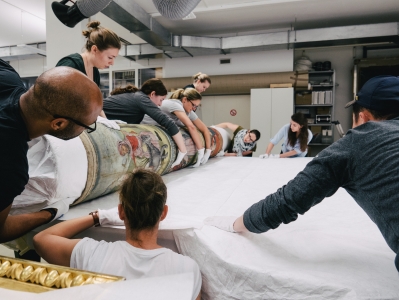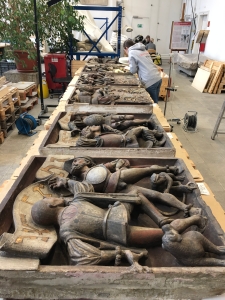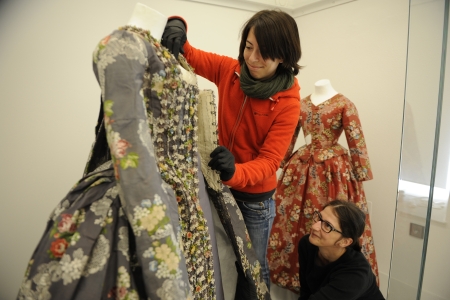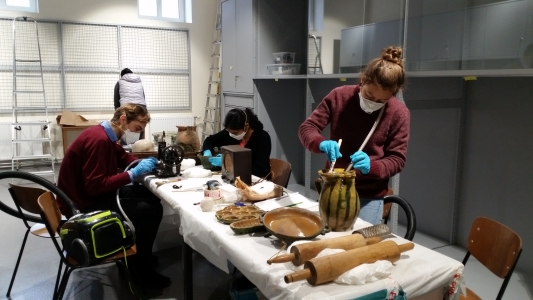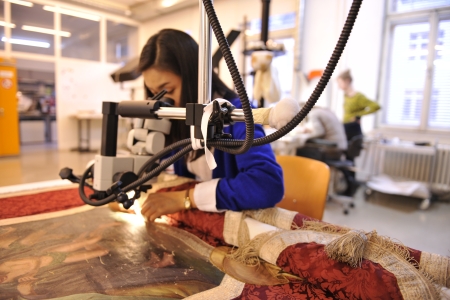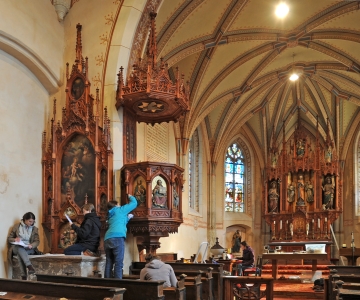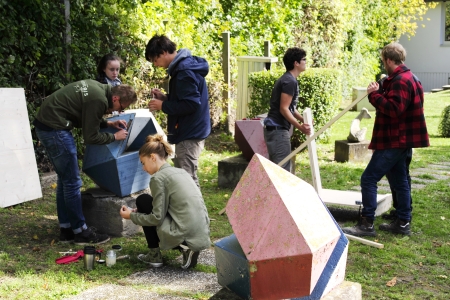Head of Institute:
Univ.-Prof. Mag.art. Dr.phil. Martina Griesser-Stermscheg
Deputy Head of
Institute: Univ.-Ass. Mag.art. Marija Milchin
Deputy Head of Institute:
Marion Haupt
The Institute of Conservation is an internationally renowned center of
competence regarding conservation-restoration matters, as well as regarding the preservation of art and cultural assets. The
four study programmes available specialise in the conservation-restoration of paintings, objects, textile, and stone. In addition,
there are options to specialise in the conservation of archaeological finds, or in the conservation of modern and contemporary
art.
Significant priorities of the conservation sciences central to the Institute are the consideration of art
technological and cultural historical viewpoints, the application of up-to-date work and research methods, the development
of preventive and long-term conservation strategies, the maintenance of collections and exhibitions, the thoughtful handling
of conservation materials, the inclusion of ethical criteria, plus providing training in a transdisciplinary-methodical thinking
process.
The diploma degree programme of Conservation is based on project work and
practical relevance. With the help of various praxis oriented projects – such as individual restorations, interventions on
monuments, and central engagement with collection‘s holdings – students are introduced methodically and step by step into
the subject of conservation-restoration; they acquire practical experience and gain conservation-scientific competence.
The Joint Master Programme of Cultural Heritage Conservation and Management with the Silpakorn University
International College in Thailand offers graduates of Conservation-Restoration the opportunity, effective from 2020, to enhance
their skills and broaden their knowledge base. This programme pursues an innovative transcultural and interdisciplinary approach.
The focus is on project management, research, and teaching at an international level as well as the preservation of cultural
assets in the European and the Asian region.




